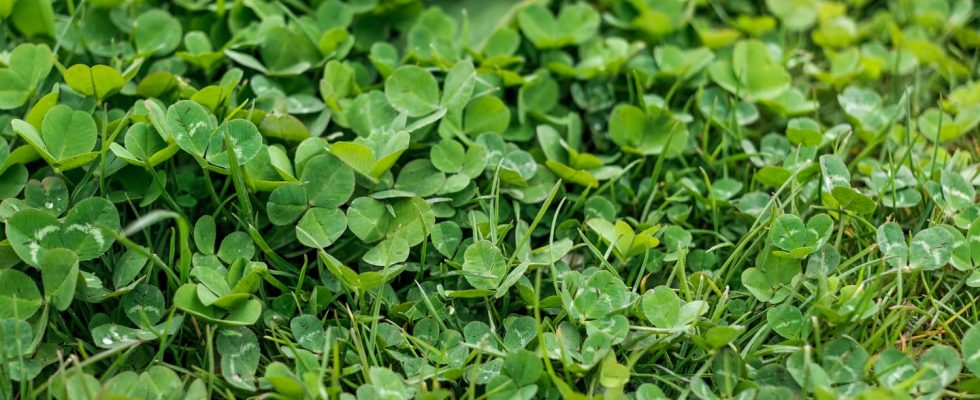Did you know that its presence in your garden can say a lot about the health of your lawn?
Having a lawn that is always in perfect condition is no easy feat. Between yellow spots, holes, and weeds, gardeners always have things to worry about. It is also rare to have a lawn without weeds. In this category, clover is a very common weed. While some find it pretty and consider it a symbol of luck, many prefer to get rid of it and find it undesirable. But be careful, clover is difficult to eliminate because it spreads very quickly in the lawn.
But beyond its seemingly harmful appearance, clover can actually be a valuable indicator of the health of your lawn. This humble plant with three leaves (or four for those lucky enough to see them) can indeed reveal crucial information about the condition of your lawn and the measures you should take to keep it in tip-top shape.

First of all, clover thrives in acidic, poorly aerated soils. Its presence can therefore signal an imbalance in the pH of the soil or excessive compaction, problems which can hinder the growth of the grasses in your lawn. By identifying these areas where clover proliferates, you can improve the condition of your soil by fertilizing it in a targeted manner, but also by scarifying (i.e. removing grass and moss) from the surface of your soil. your lawn to promote the circulation of air and water in the soil.
Clover can also be an ally. It helps improve the fertility of the earth by fixing the nitrogen present in the atmosphere in the soil thanks to its roots. This means it can enrich the soil with nitrogen, an essential nutrient for plant growth, including your lawn. Clover is also beneficial for the biodiversity of your lawn. Its flowers attract bees, bumblebees and butterflies, which play a crucial role in pollinating surrounding plants. But that’s not all, in case of drought, clover also plays a protective role for your lawn.
Rather than seeing clover as an adversary, you could see it as a partner in the natural fertilization of your garden. This is a valuable indicator of the health of your lawn. Its presence can help you identify invisible problems in your floor. If you still want to reduce its presence, you will need to mow your lawn regularly. You can also apply a nitrogen-enriched fertilizer to your soil. In fact, clover grows mainly in soils poor in nitrogen.
